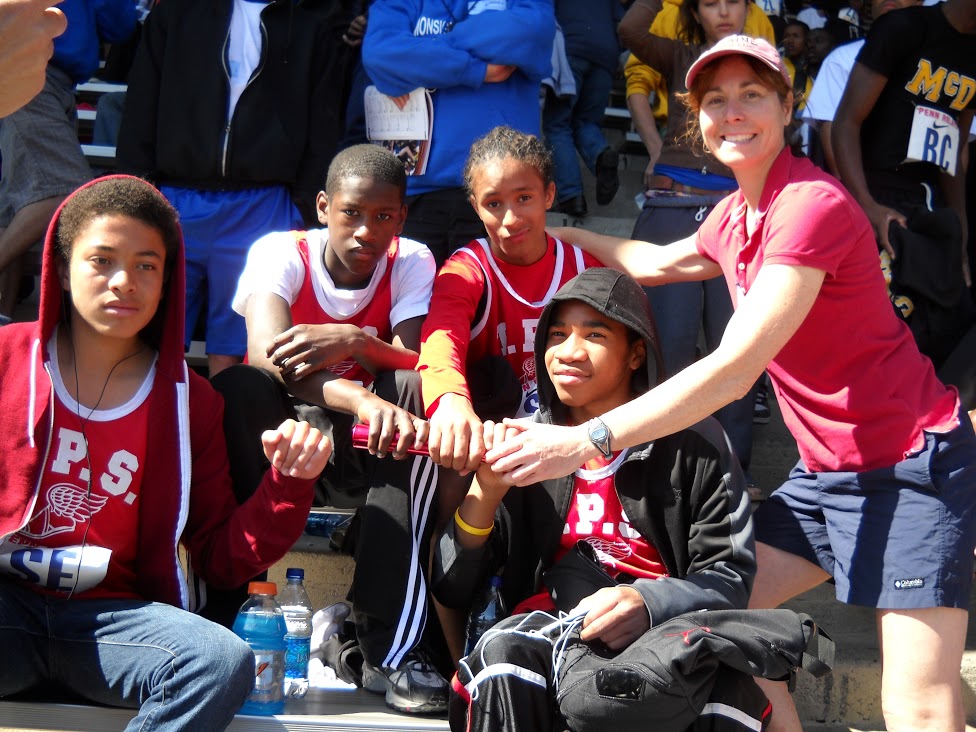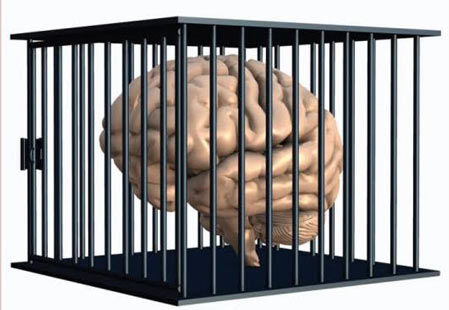Sharing a guest post from my college teammate at University of Virginia Meg Waldron. Meg is doing great work helping the minds and spirits of young runners around the country. For young runners and parents this is an important read.
Psychologists define perfectionism as a personality trait characterized by a person’s striving for flawlessness and setting high performance standards. This mindset is accompanied by critical self-evaluations, as well as concerns regarding others’ judgement. Sadly, once these standards are met, they are deemed insufficient, and new benchmarks are set—to be lighter, to be faster. The beat goes on. Simply put, perfectionism is an insatiable task-master fueled by perpetual anxiety about never being quite good enough.
As I write this dispatch, a song sparrow lands nearby, and I’m compelled to watch its smooth conical beak dip into water. I was a nature kid. So deeply resonant with a rain drop’s perfection, I could spend all morning at a fresh puddle. Hours would go by foraging in the garden, and there were abundant trees to climb. The world was perfect by design, just like the tree-climber herself.
Soon after those years, I discovered running. But not the kickball-race-you-to-the-hydrant-tag-game kind of play. The kind where you compete against others to see who breaks the tape. I was a natural, and before long had constructed an arena in our yard complete with old mattress high jump pit, strawberry patch long jump, and backyard sprint. No longer just the fastest kid on the block, I became one of the fastest in the state, and then the country. To others I was not me, but what I did. The message became: Get a paid ticket to college. The small print on an NCAA scholarship should read: “Hey kid, you better deliver, or else.” With hope in my heart and a signed contract, I left home unaware that the Sword of Damocles hung over my head by only a horsehair.
And so I ran for them and their contract as if I had no choice, as if it defined me. Individuals struggling with perfectionism often live out their lives as if-–as if they have to prove something to themselves and others, as if they’re self-worth depends on it. It’s like the brain has been hijacked by a force working against one’s innate drive to develop and aspire.
When I got to college perfectionism went into full court press. Instead of being perfect for who we were, many of us got caught up in the ceaseless pursuit of who we were not. I saw my teammates felled by eating disorders, attempted suicides, and isolation, as I was burning out from feelings of being, as one coach said, “not as good as I said I was.” In the end, many of us were spit out believing we were a lot less perfect than we thought we were. The sports arena, like life itself, was ripe for such an experience. I understand this now because I have an MS in Sport Psychology and one in wisdom. As a mental performance coach, I strive to ransom the athlete’s hijacked brain from such programming.
An example caught my eye in the NY Times the other day. “Oh my gosh, oh my gosh, you are not a failure’!” was US Olympic high jumper Chaunté Lowe’s comment recently upon hearing that athletes placing ahead of her in Beijing failed retroactive drug tests, thus giving her the bronze. As a former elite trackster whose childhood dreams got abused, I am incredibly disheartened that Chaunté got her podium invite nine years after the crowds left the stadium. But, a failure? My sister, only 1 in about 9,000 people make the US Olympic track team. You never were a failure. Never will be. Podium or not. I totally get why Chaunté would feel that way, and I hope she reads this like a love letter to her soul.
Madison Holleran, the young University of Pennsylvania track runner who committed suicide in the winter of 2014, left behind a note saying: “I thought how unpleasant it is to be locked out, and I thought how it is worse perhaps to be locked in.” It’s possible that both of these athletes were trapped in this as if role to be somebody for others that they weren’t for themselves. This fixed way of being gives us little room to separate our identity from what happened.
Where do these fixed roles come from? Roles can emanate from childhood, where hidden social messages first were interpreted in ways those providing them may not have ever intended. It’s like the parent saying, “good boy” or “good girl” if you make your bed. It implies that if you don’t, then you’re a bad person. The bottom line is that you’re just a person–neither good nor bad–developing through experience. Unfortunately, the perfectionist experiences falling short as some judgement against their value. And sadly, the easiest person to take it out on is yourself.
So how do you shift your mindset to be a hardy learner instead of an anxious and self-critical performer? Consider taking on what Stanford researcher Carol Dweck calls having a Growth Mindset. Dweck’s studies show that when individuals are wisely acknowledged for their effort, strategies, process, and focus, they develop resilience and persistence. Outcomes–getting an A, winning a race–are NOT equated with self-worth, challenge is embraced, and mistakes are OK.
This work reshapes your brain, too. Research also shows that people who take on a growth mindset form new and stronger neuron connections that, over time, allow them to develop resilient mindsets primed for learning.
How you talk to yourself–staying curious, asking questions like: “what went well,” “what can I learn from this,” “what feels difficult,” and “who can help me,” invites new data and support. Tossing out statements with always, never, and should, creates space for new self-expression.
Take the Growth Mindset Challenge:
Be specific in your praise, acknowledging…
- Effort
- Strategy
- Process
- Focus
- AND, not attaching results to self-worth
What does this look like?
A parent to their youth athlete:
- Instead of: “You’re the best player out there,” you can say, “You had 6 great passes today.” (Acknowledging effort)
Coach to athlete:
- Instead of, “You’re not as good as you said you were,” say, “There’s no doubt you have speed and strength. College is a big transition. Let’s ease up on your workouts so you have something left for racing.” (Focus on strategy)
To yourself:
- Instead of, “I suck at the triathlon,” you can say, “I didn’t do what I’d hoped, but I nailed the transitions.” (Focus on process)
Hey, remember our sparrow at the beginning? It has long taken off, but its song keeps coming out of the flowers. Again, I‘m taken by the notion that life is perfect by design, and perfectionism a destructive social construct. As my fingers pop away on the keys, this laptop sits on half a titanium knee, and molasses runs faster than this girl. The closest I ever got to an Olympic team was helping run the torch down the Pan American highway. But I know that how far or high or fast I go doesn’t define me. I’d like all athletes to get to feel that way.

Meg Waldron has her MS in Sport Psychology from Temple University and is a Mental Performance Coach. She has worked with universities and post-collegiate teams including individuals at the 2016 US Olympic Track & Field Trials. Meg has coached athletes for over 20 years and is a USATF Certified Track Coach.


